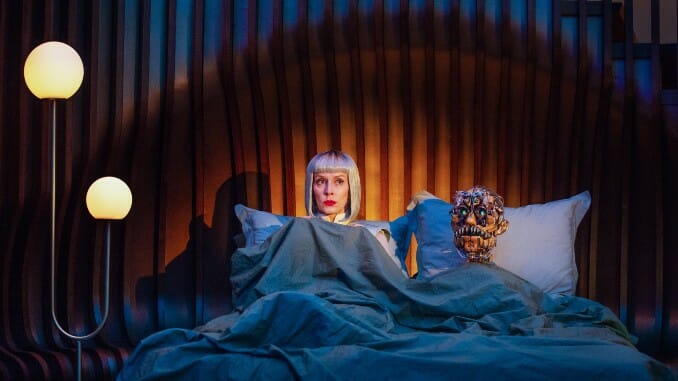Dystopia Master Jean-Pierre Jeunet Disappoints with Dark Comedy Bigbug

When French filmmaker Jean-Pierre Jeunet burst onto the scene with Delicatessen in 1991, not only did it quickly become recognized as one of the most promising directorial debuts in history, but it also did something rare: It managed to capture the world’s fragile social and political state through fiction. Delicatessen takes place in a dystopic near-future metropolis where food is scarce, and the most desperate have resorted to cannibalism. For the past century there hasn’t exactly been a shortage of dystopian films, but Delicatessen set itself apart from the crowd by crafting a world that effectively satirized an increasing presence of political greed, through its unique sardonic and surrealist sensibilities.
Which is why, when word got out that Jeunet was teaming up with Netflix for a futuristic, artificial-intelligence-based dark comedy, it was by all accounts an exciting thing. Set in 2050, Bigbug imagines a future where humanity has co-opted A.I. as friends, romantic partners, helpers and everything in between. Things take a dark turn, though, when a subset of robots called Yonyxs attempt to eradicate humankind, forcing the good robots to dutifully lock humans in their own houses for their protection. Caught in the crosshairs of this takeover is a quirky cast of characters who are stuck in a house together against their will: Alice (Elsa Zylberstein), her lover Max (Stéphane de Groodt), her ex-husband Victor (Youssef Hajdi), his lover Jennifer (Claire Chust), their kids, a nosy neighbor and a handy robot named Monique (Claude Perron).
-

-

-

-

-

-

-

-

-

-

-

-

-

-

-

-

-

-

-

-

-

-

-

-

-

-

-

-

-

-

-

-

-

-

-

-

-

-

-

-








































